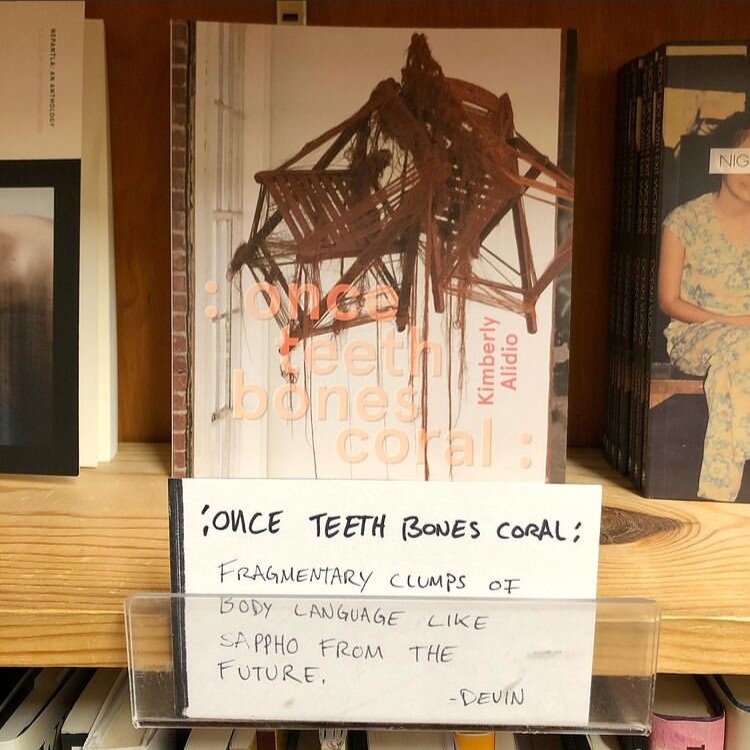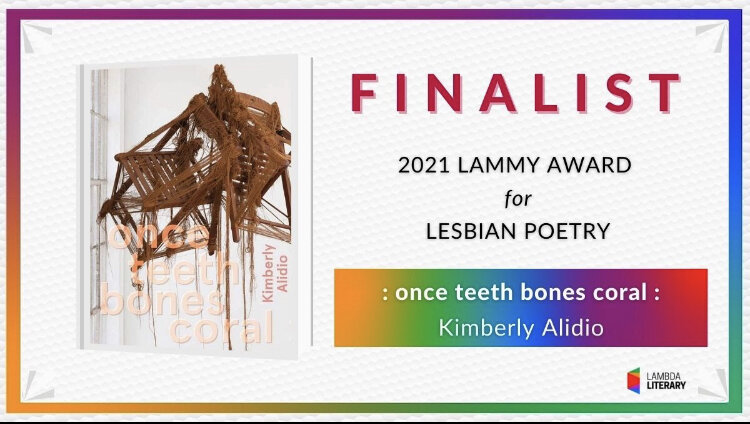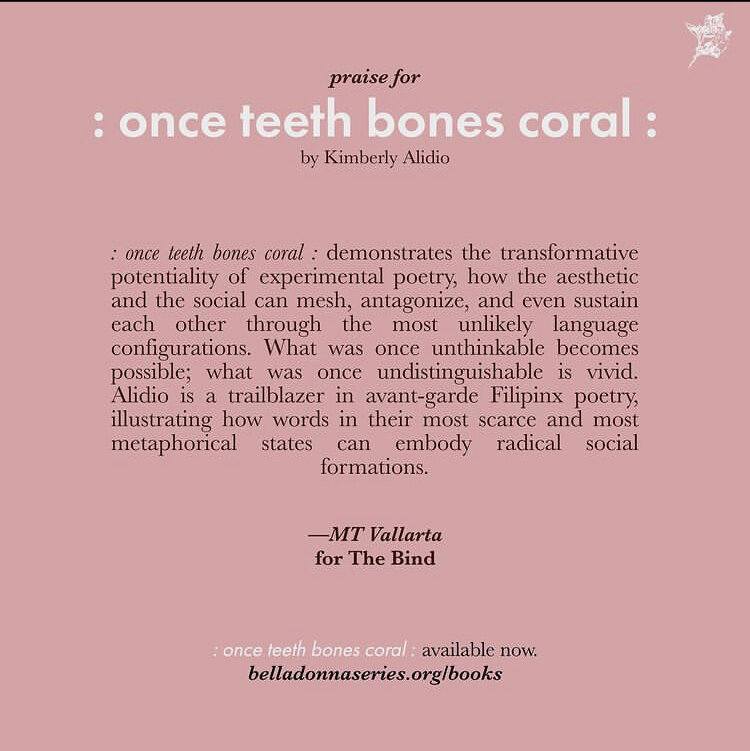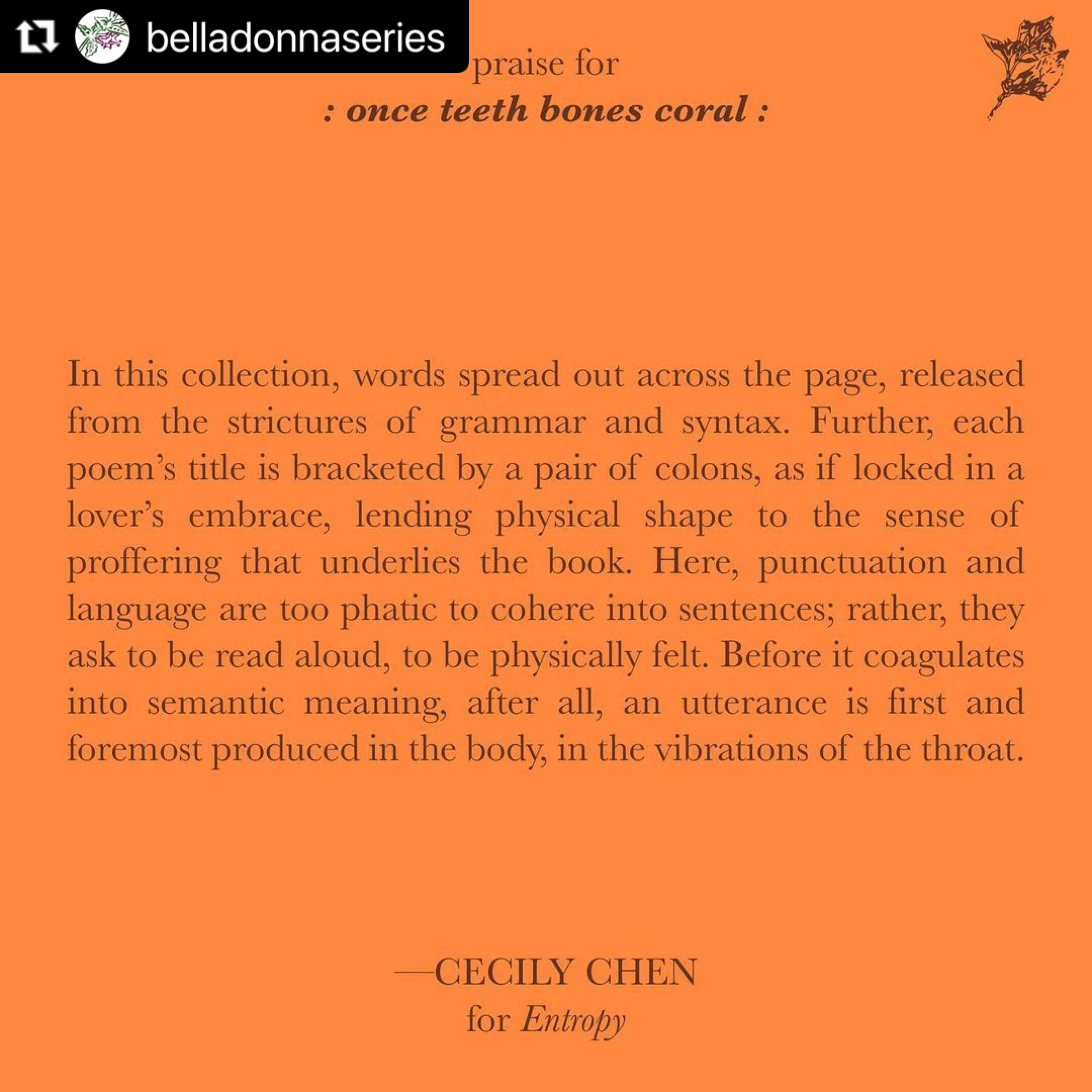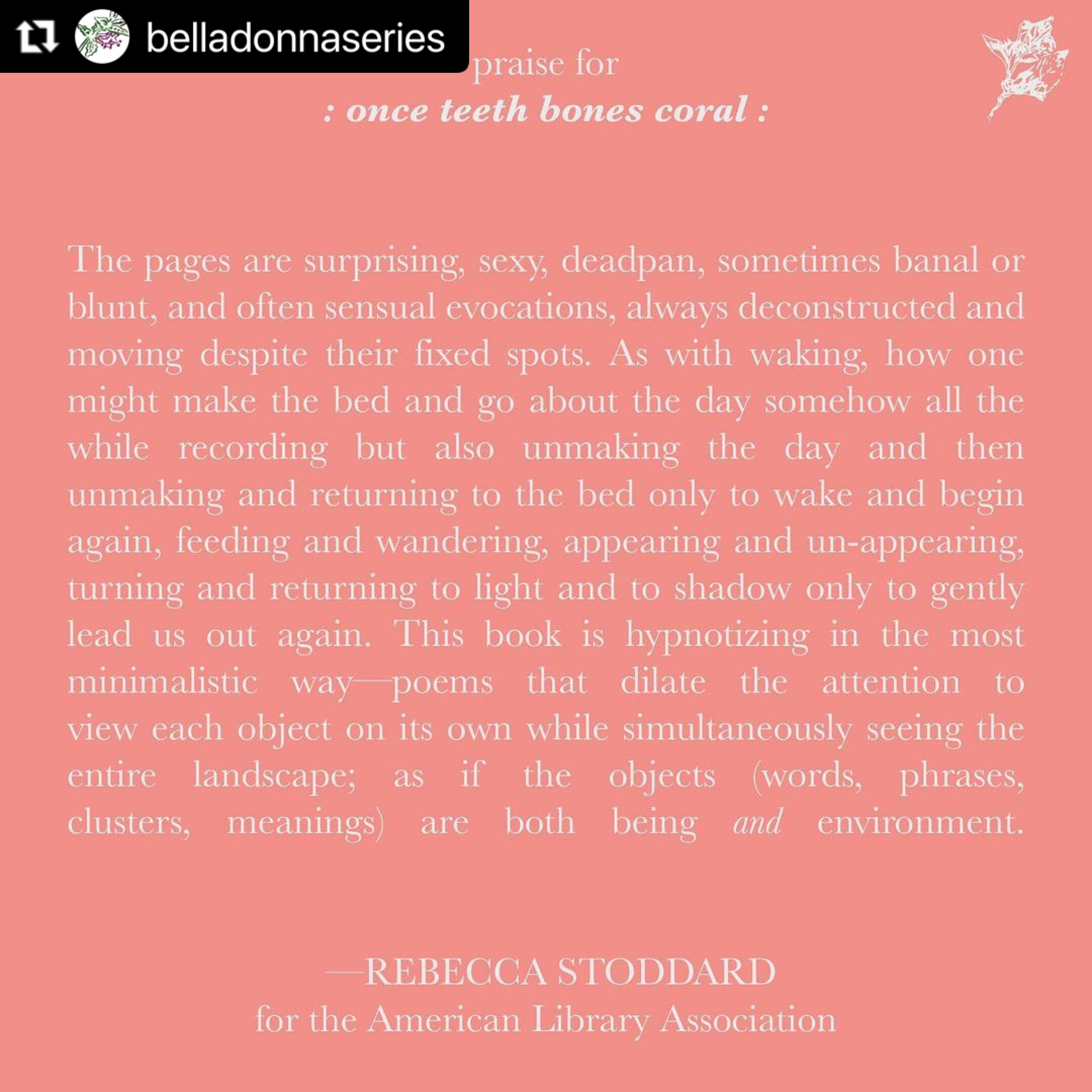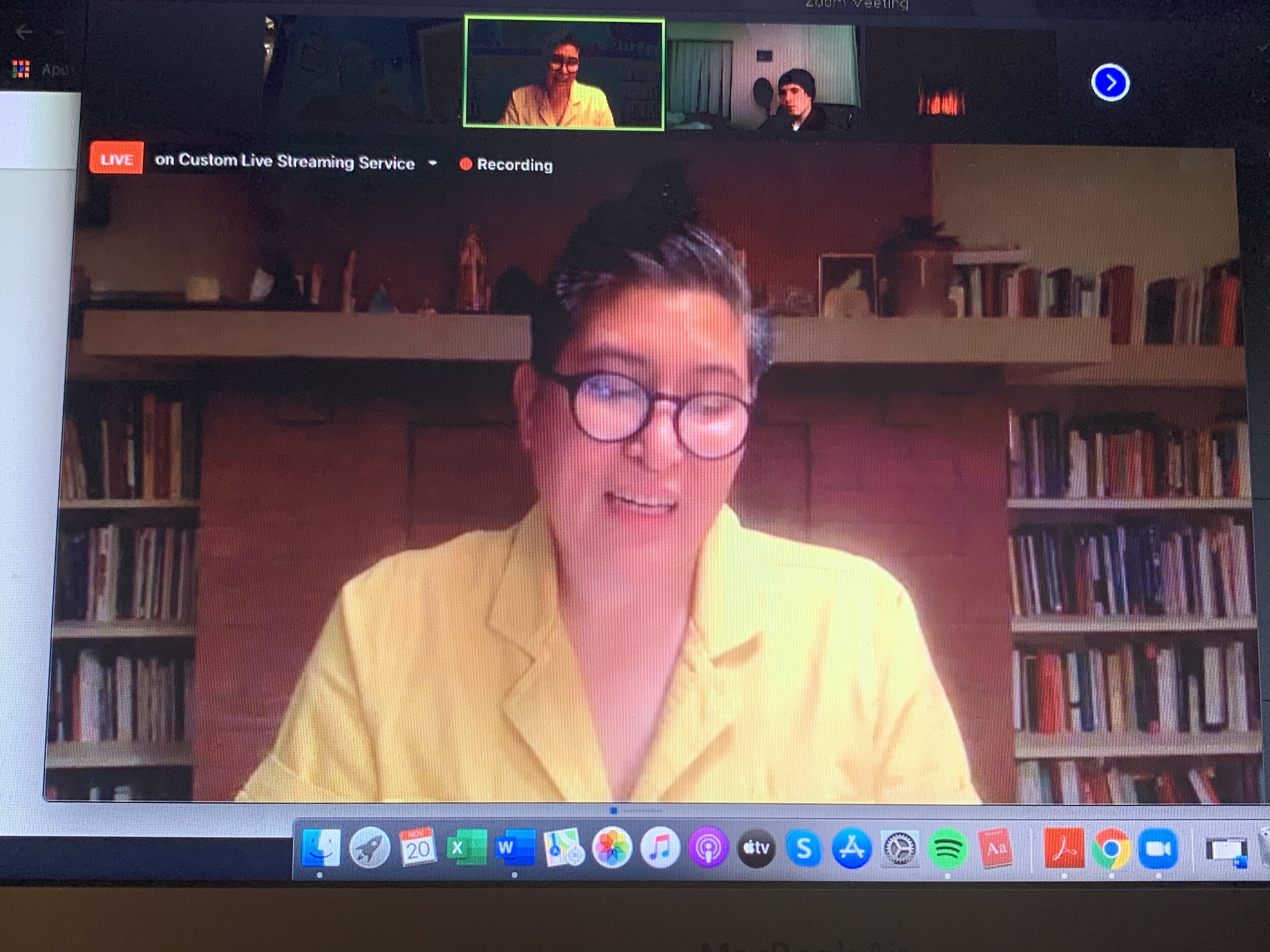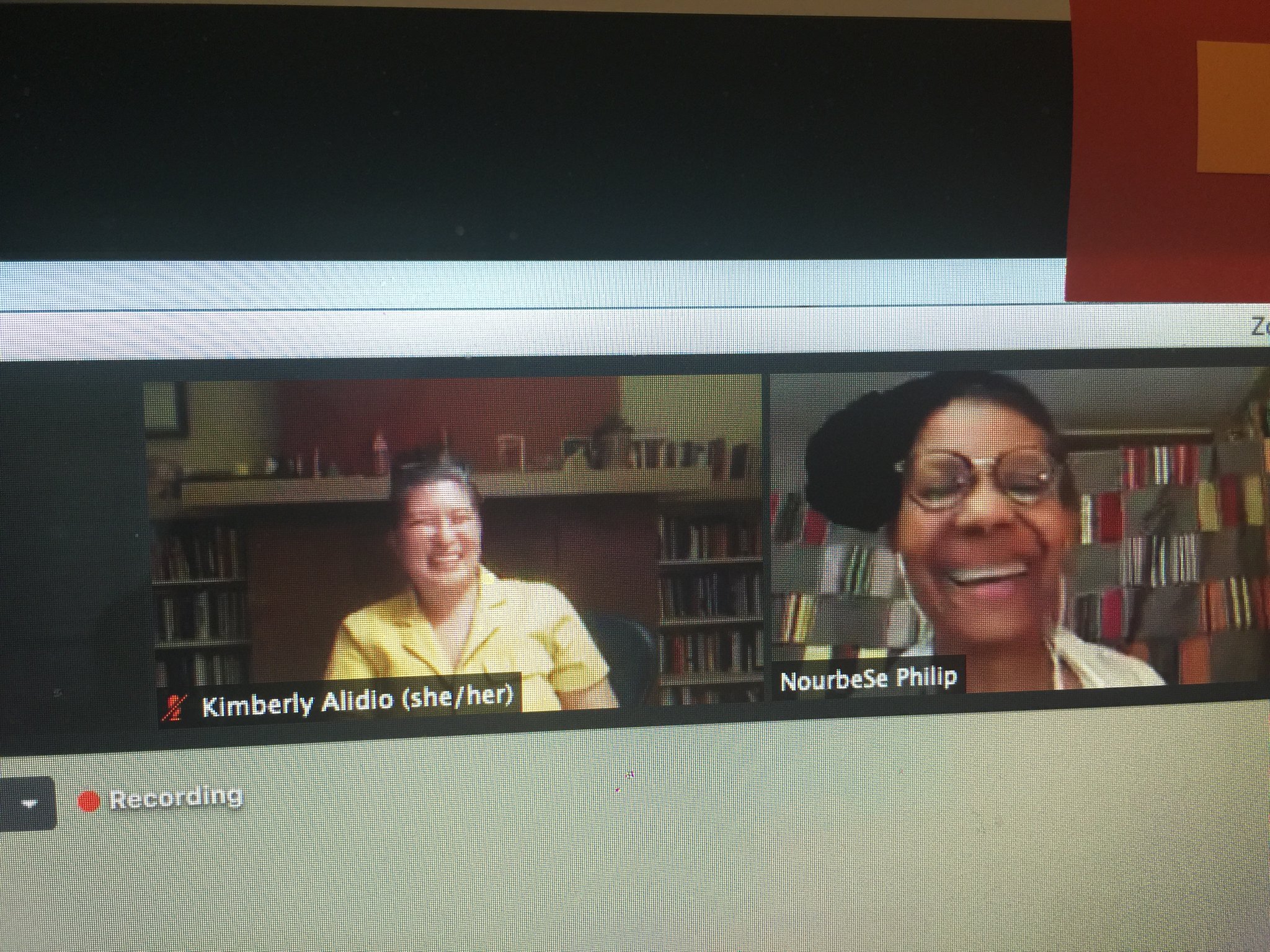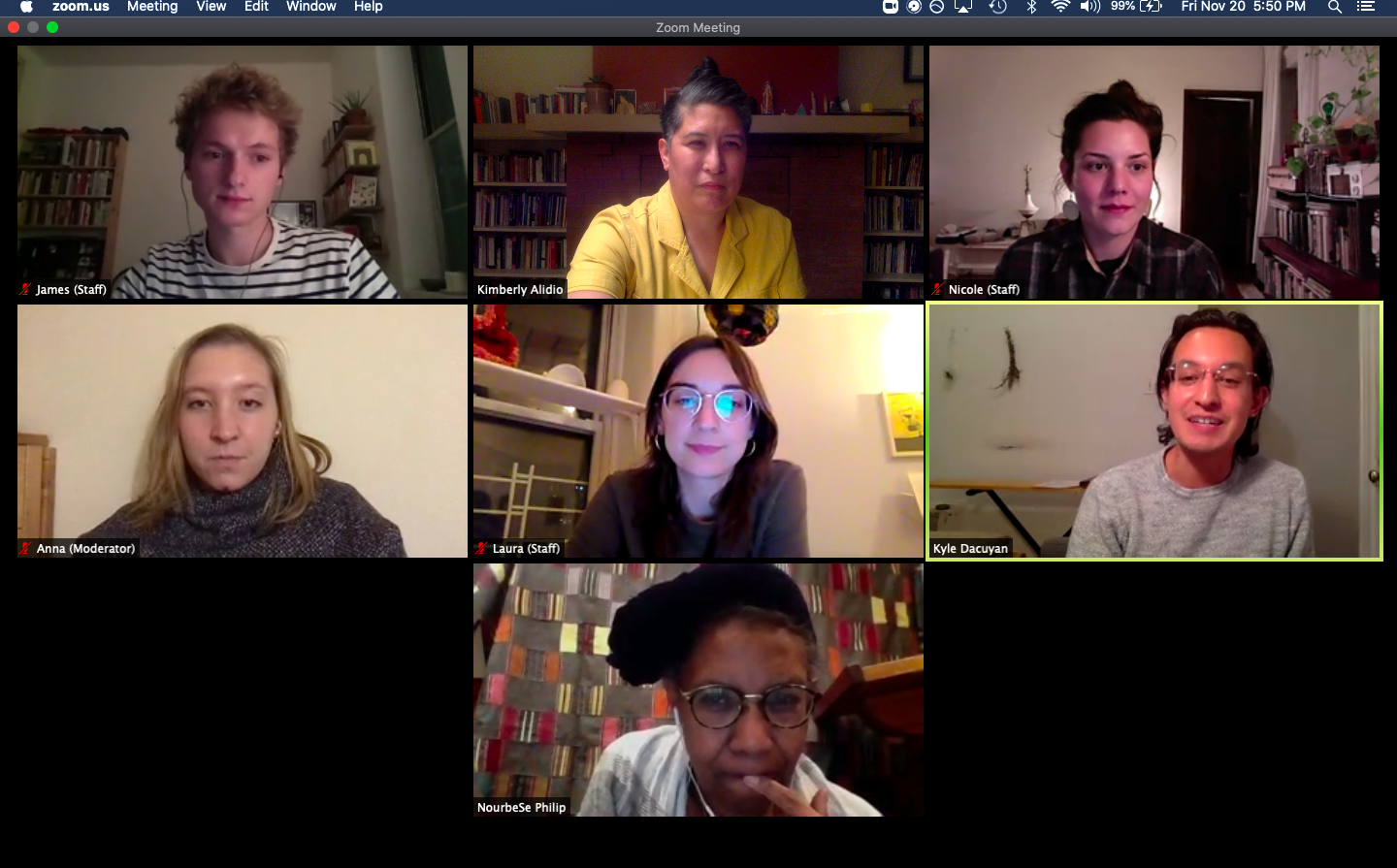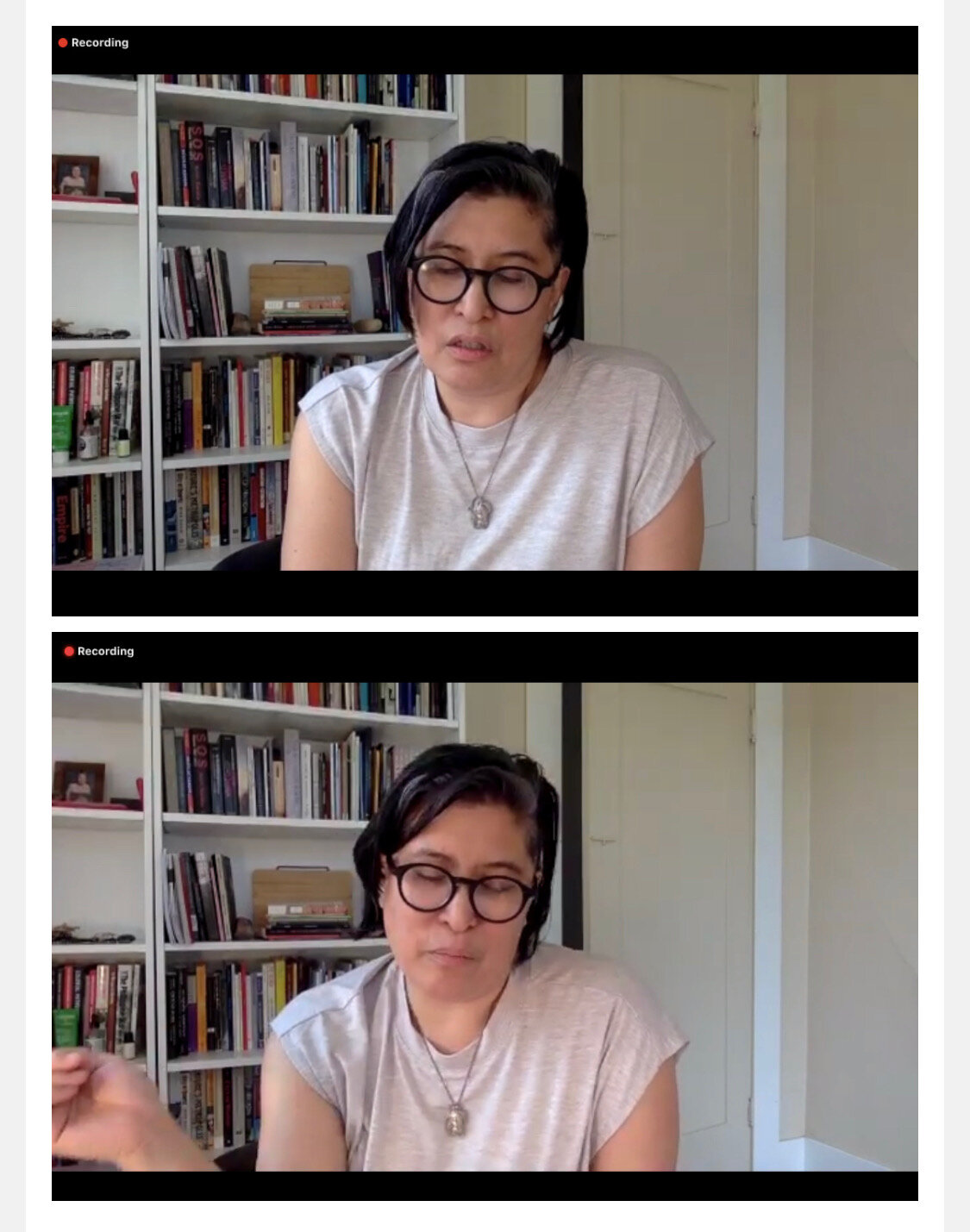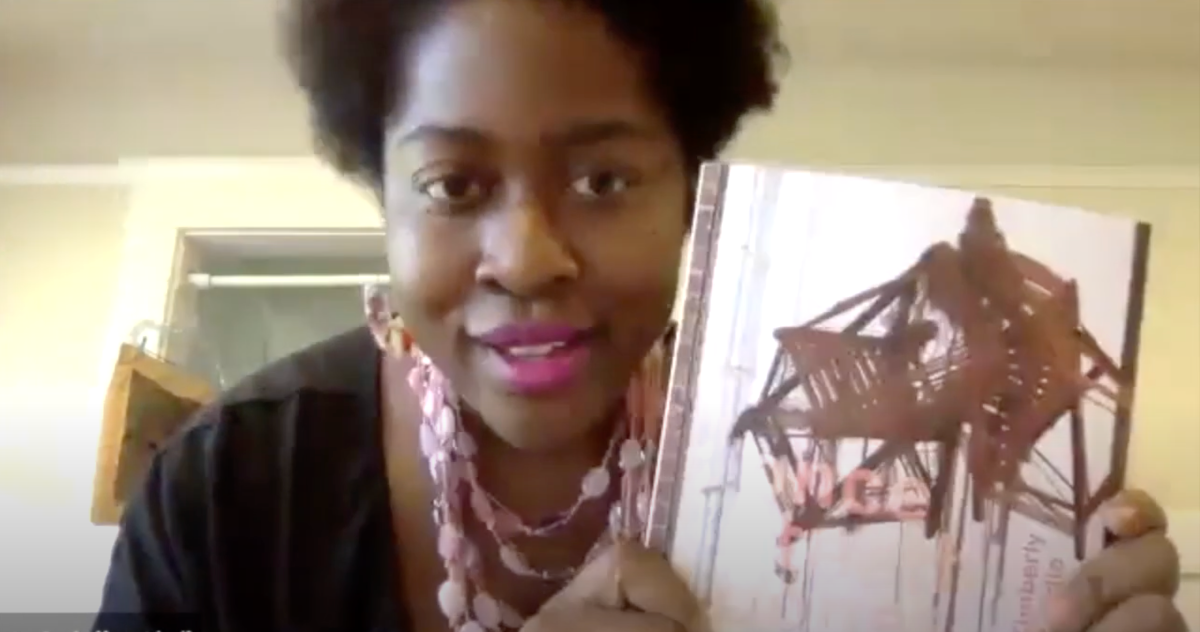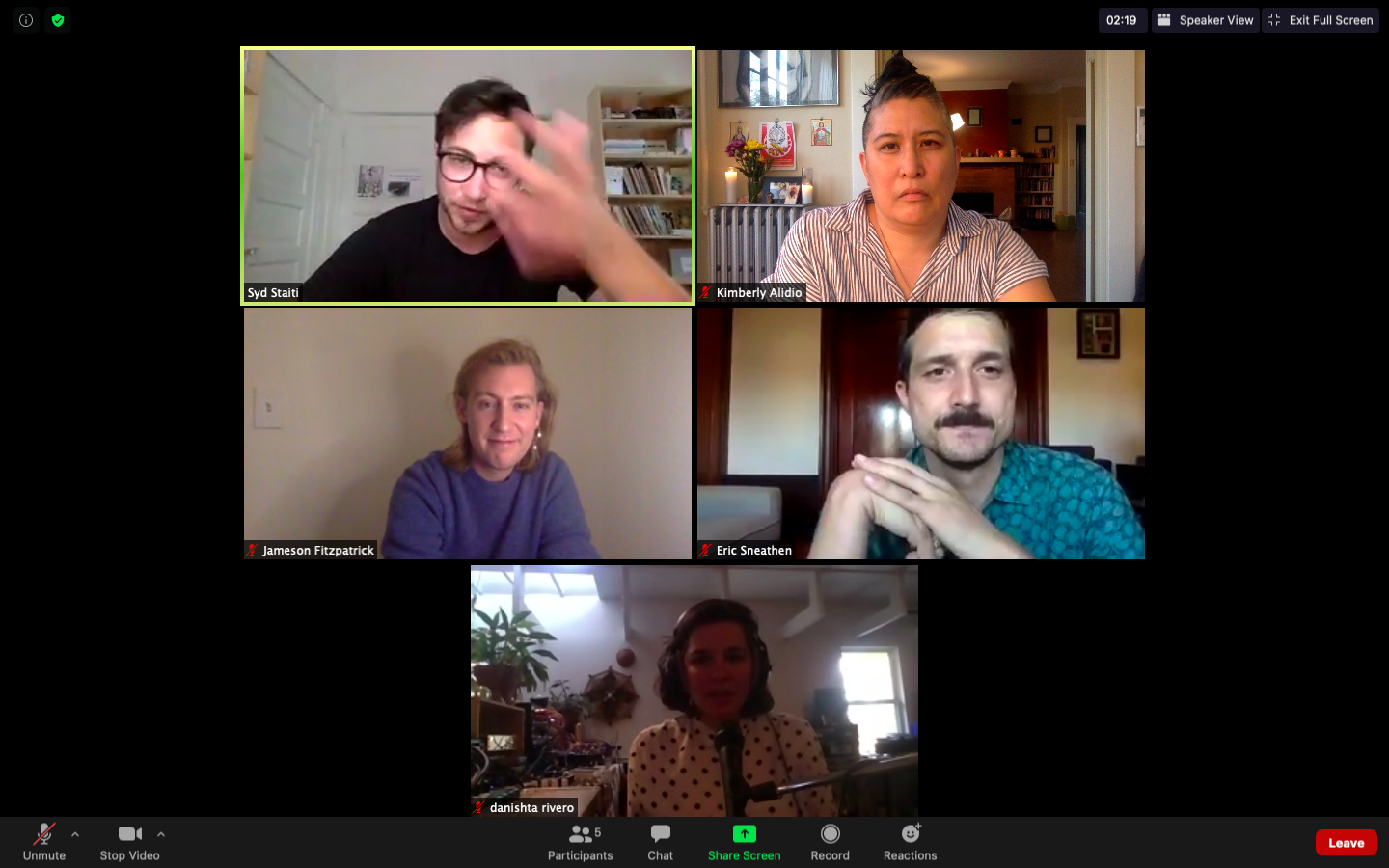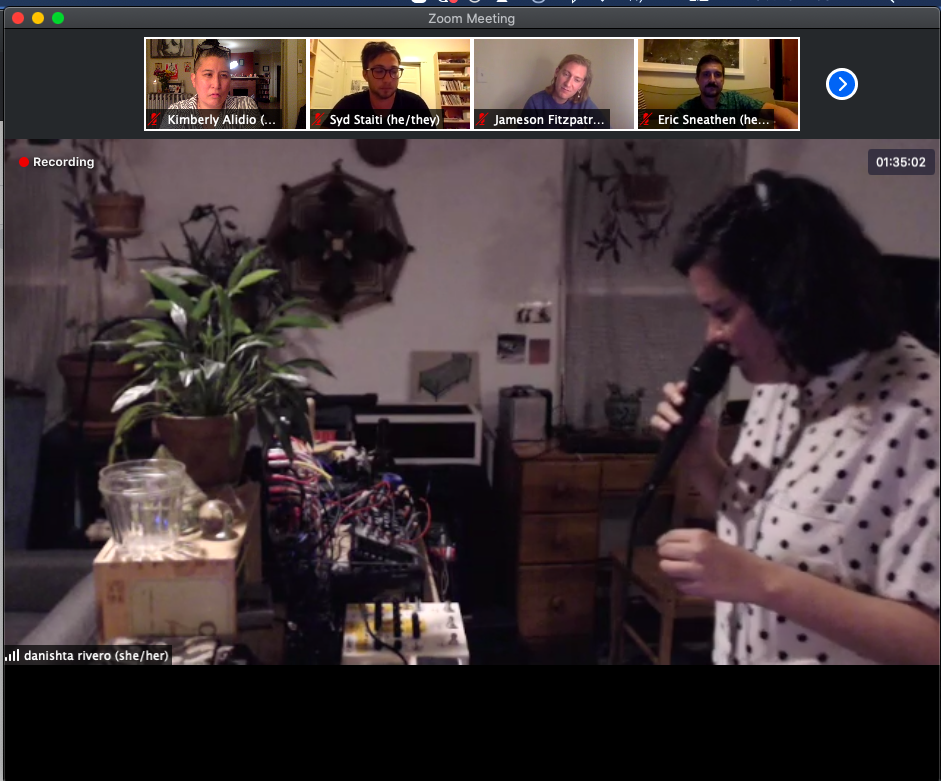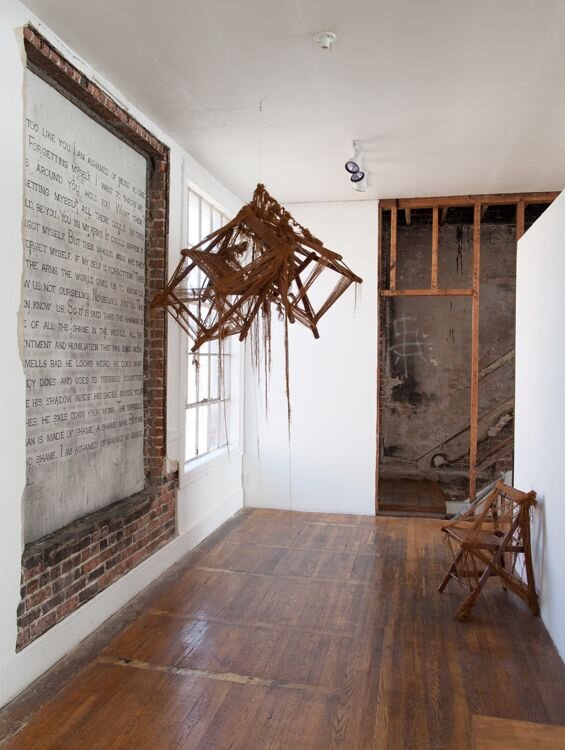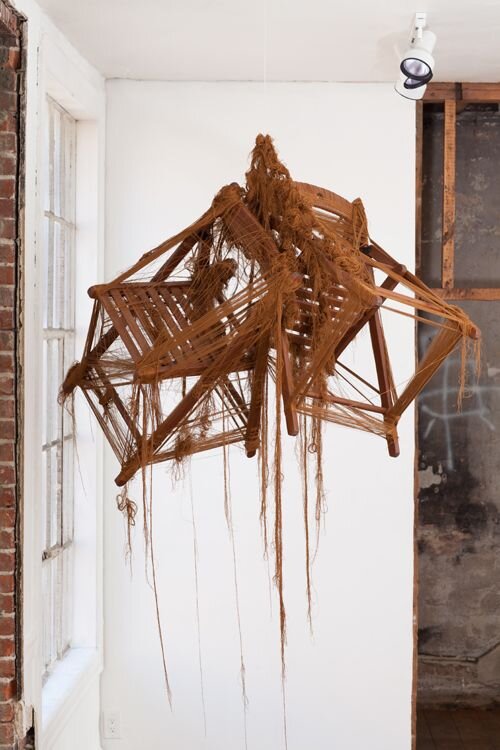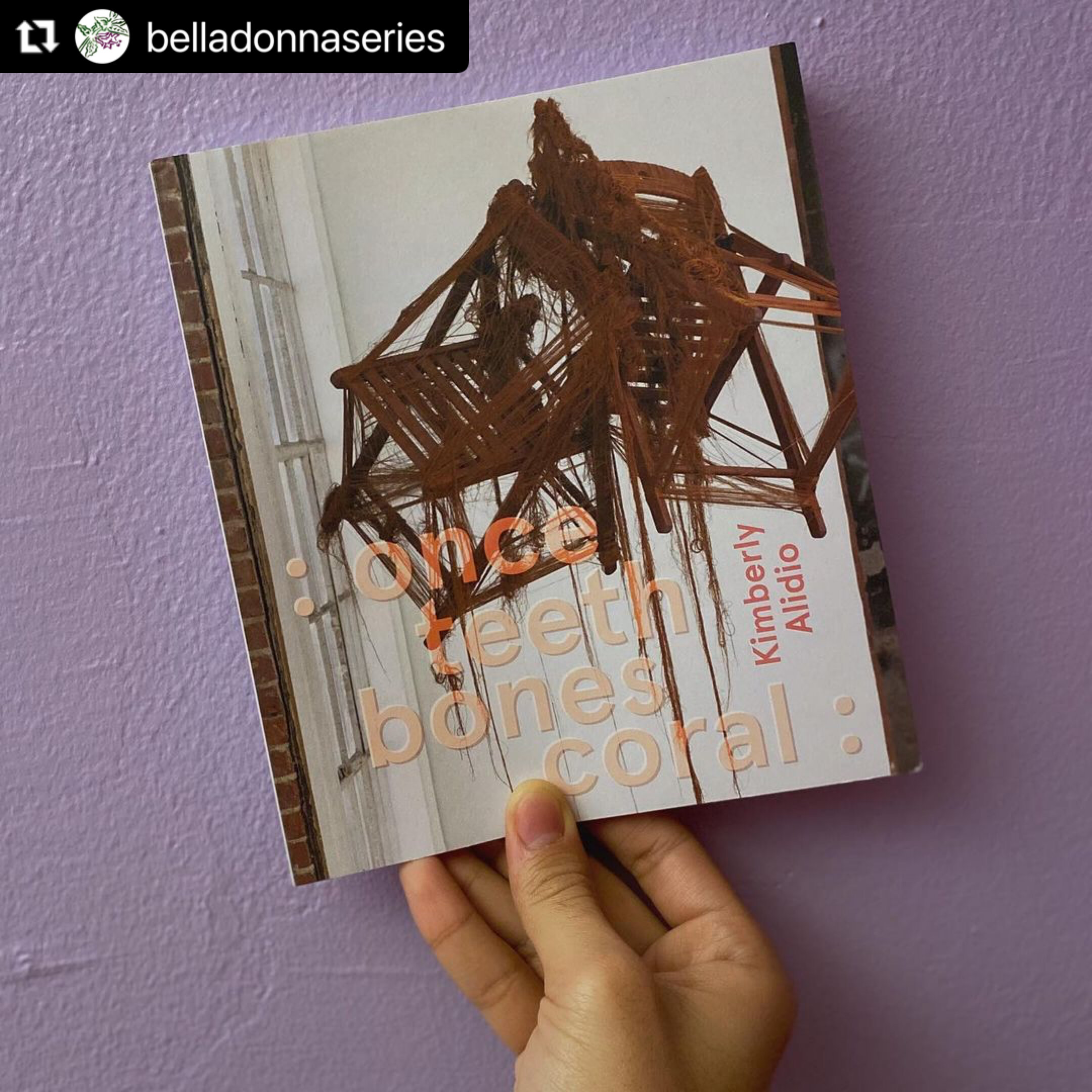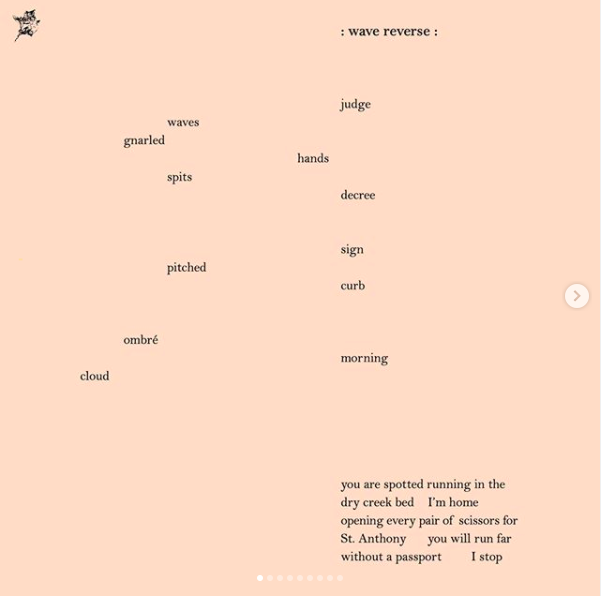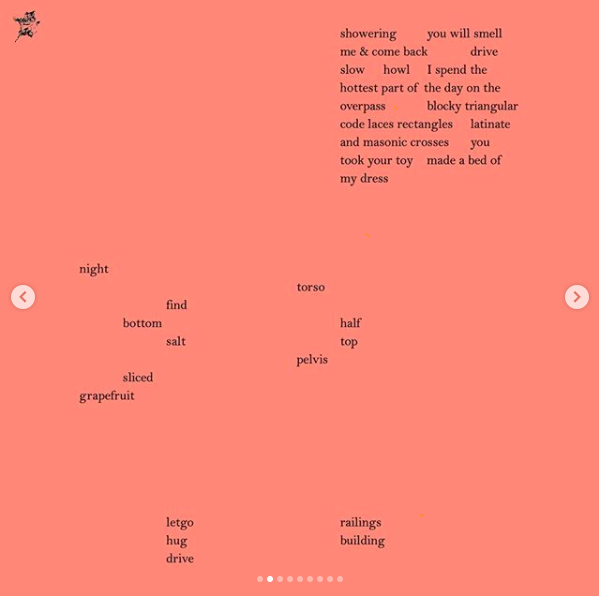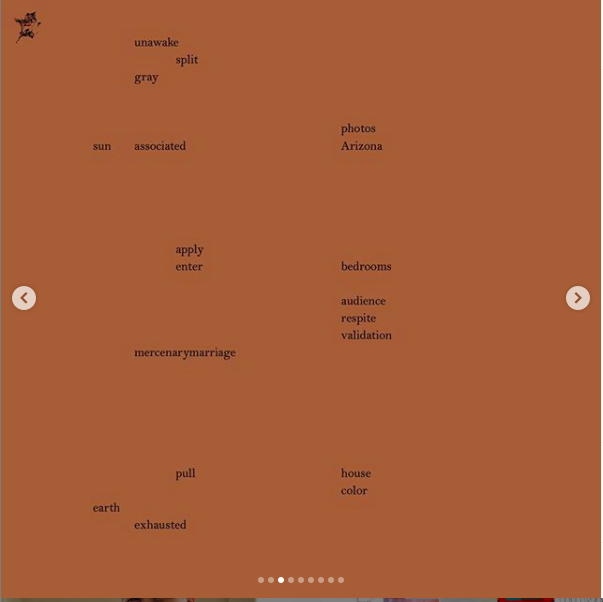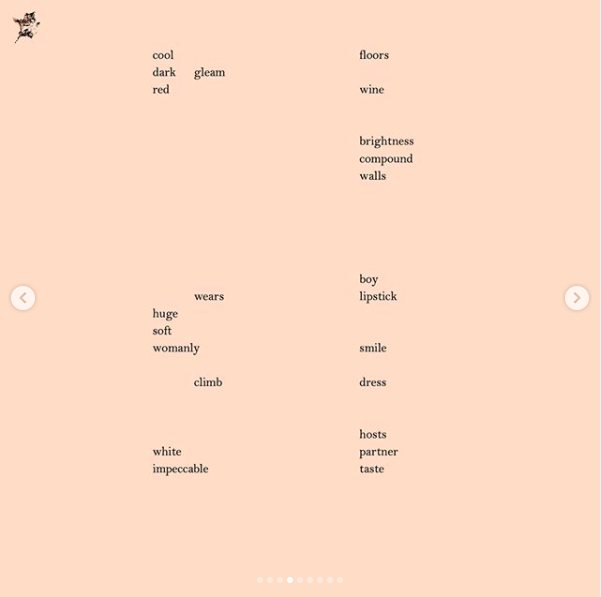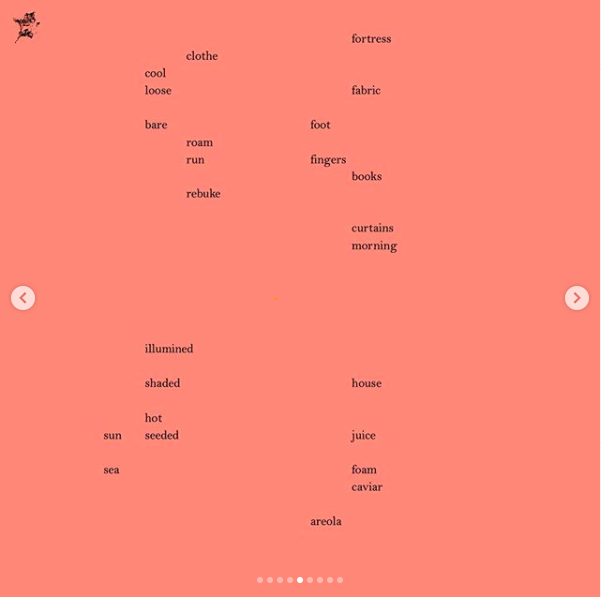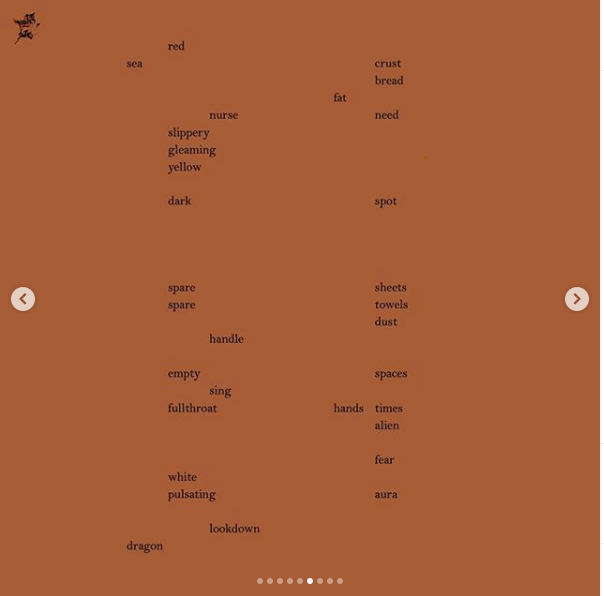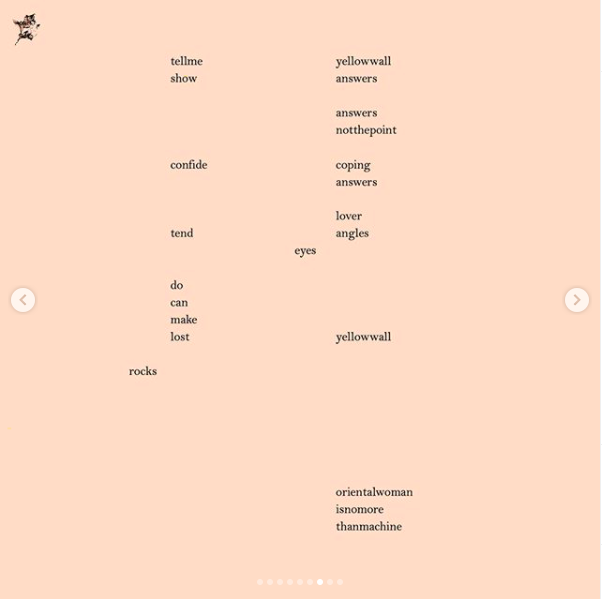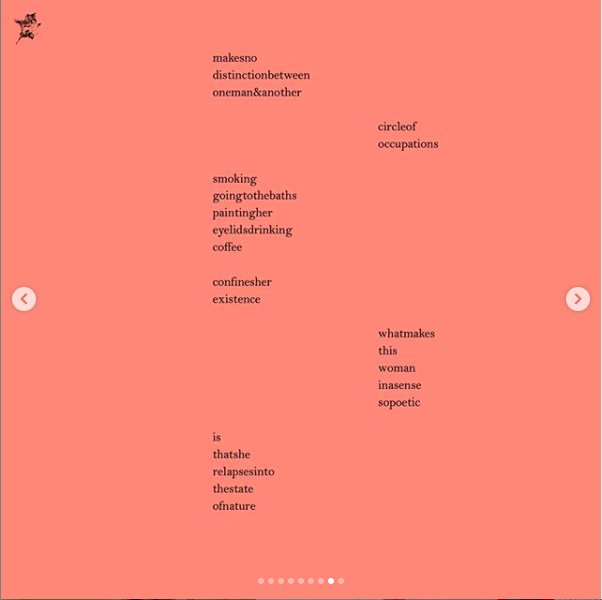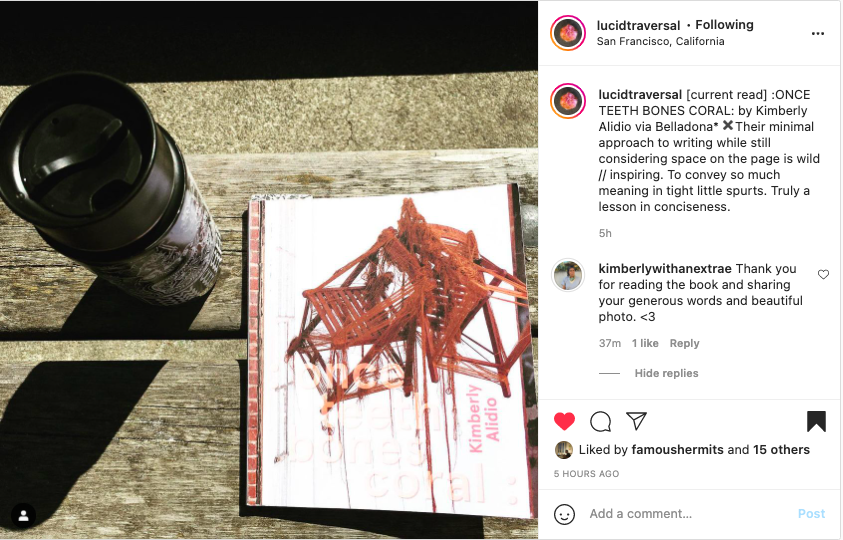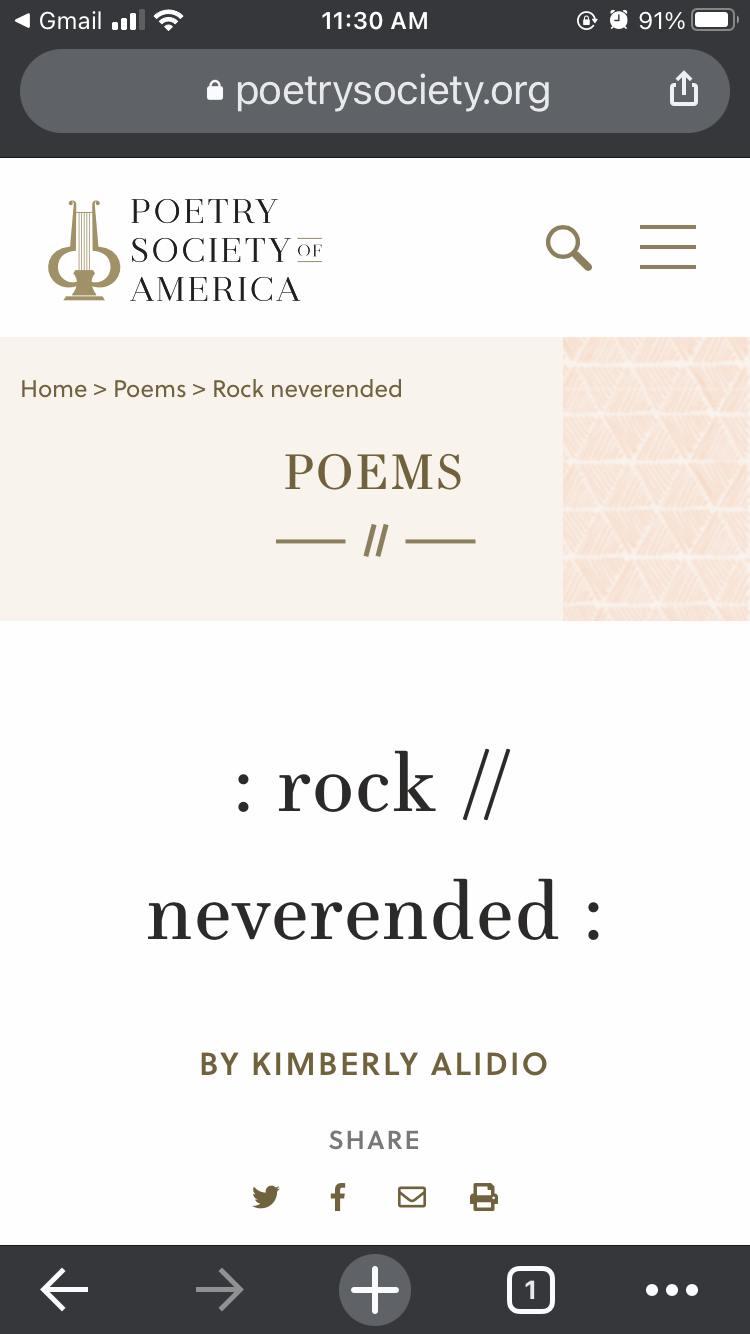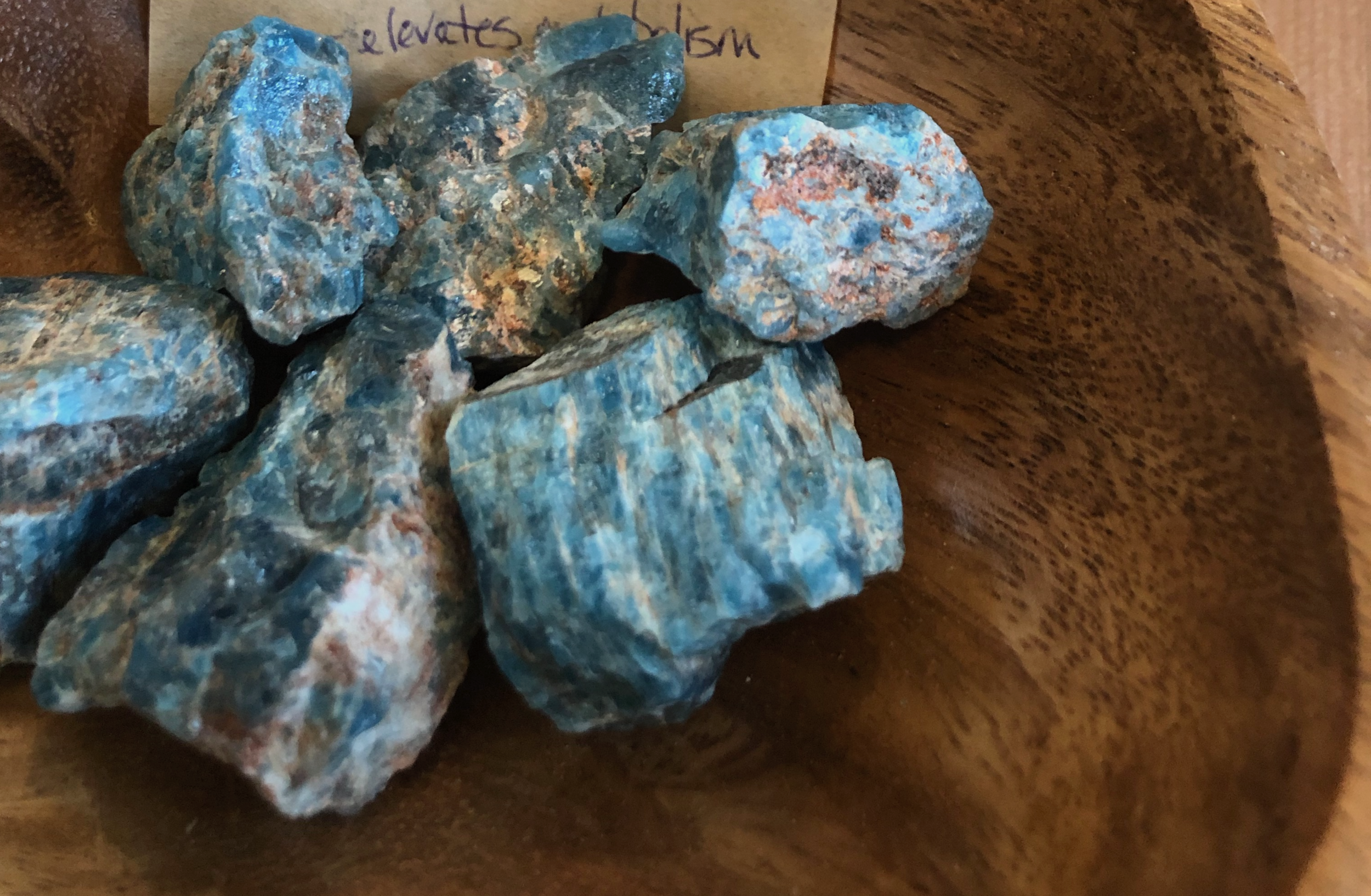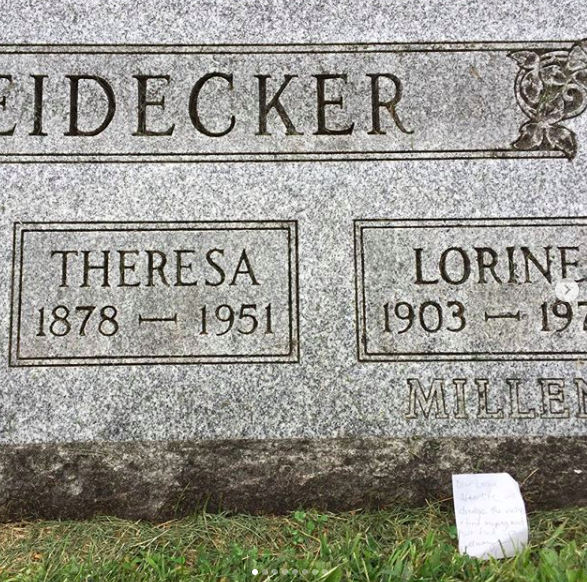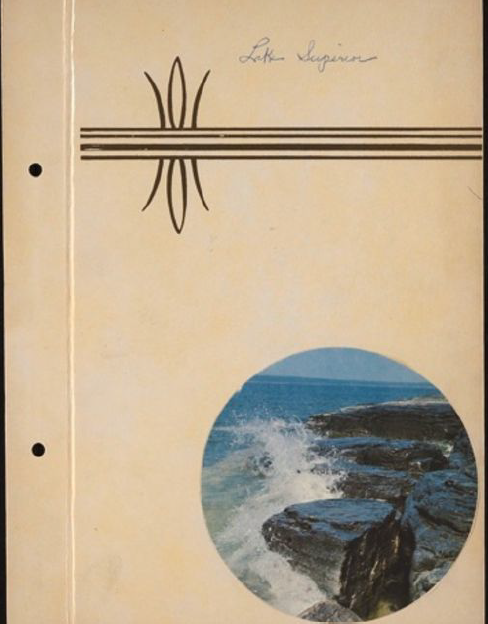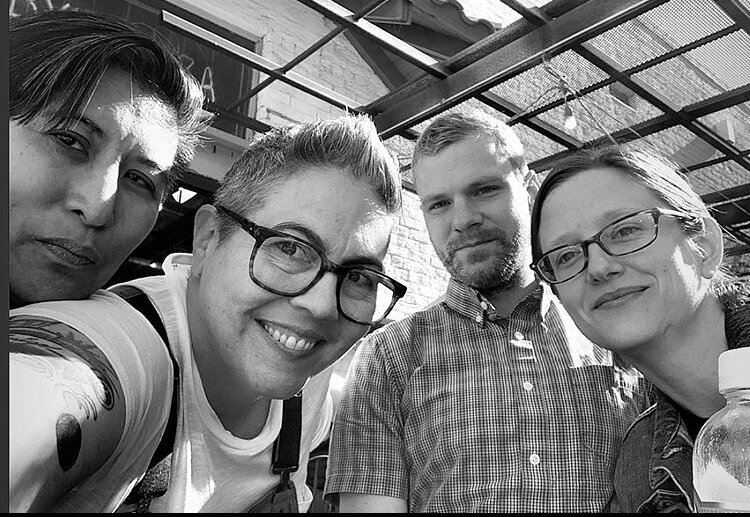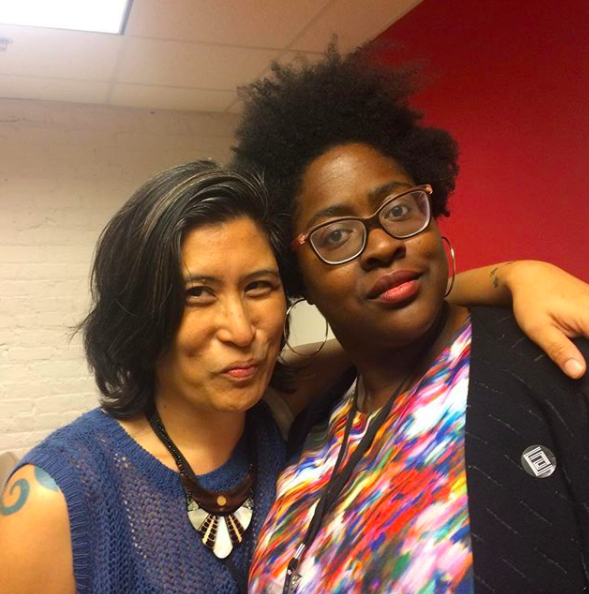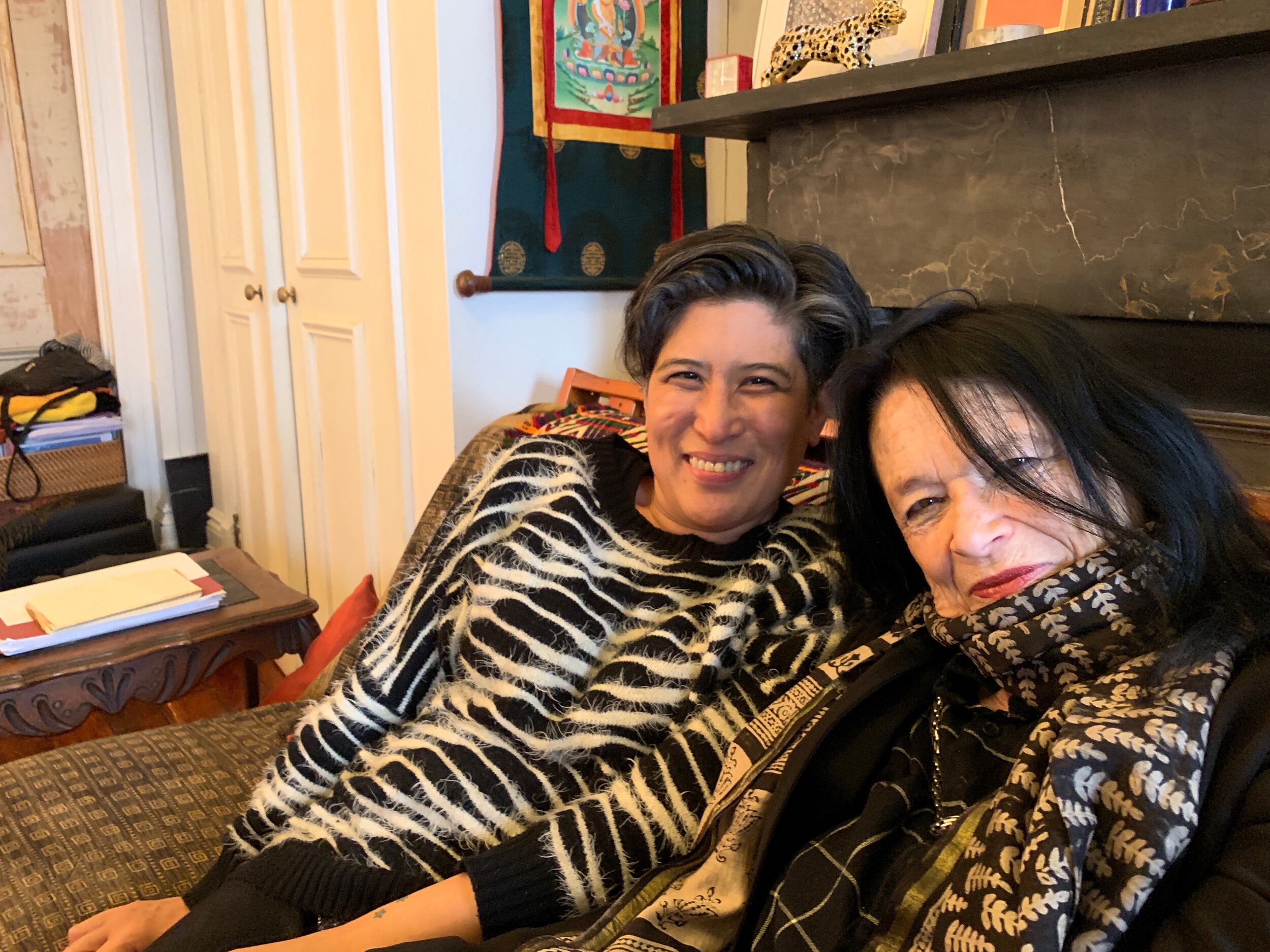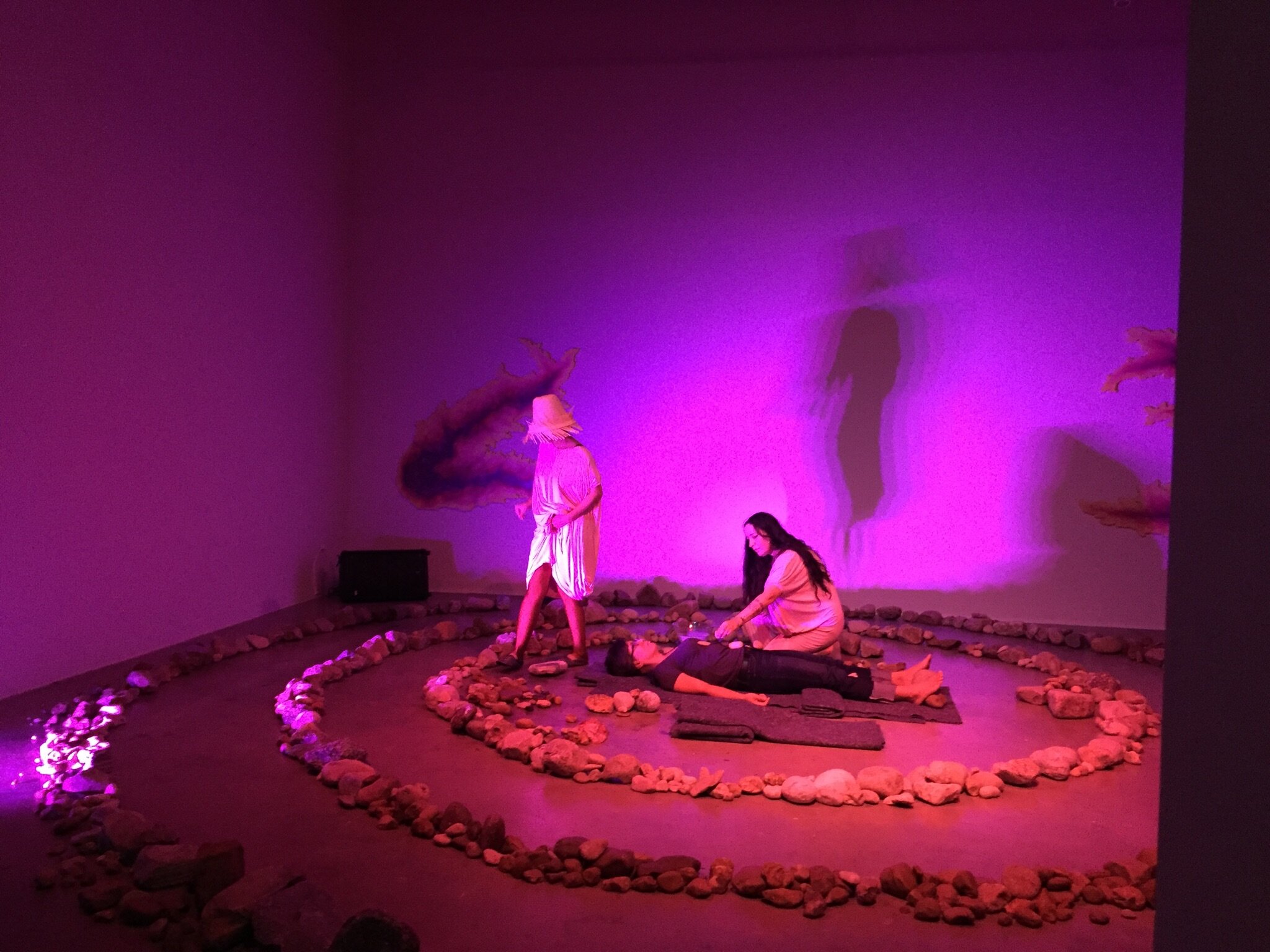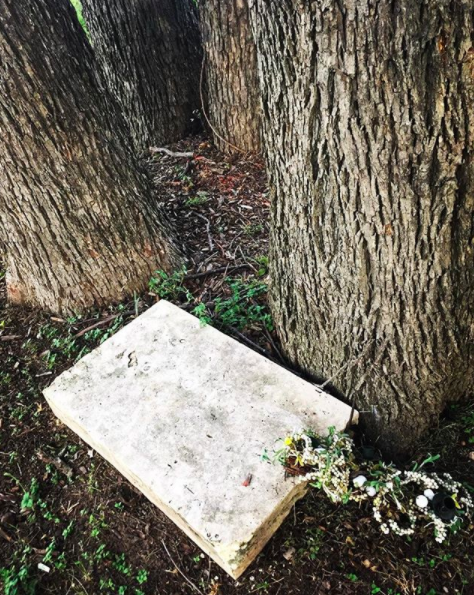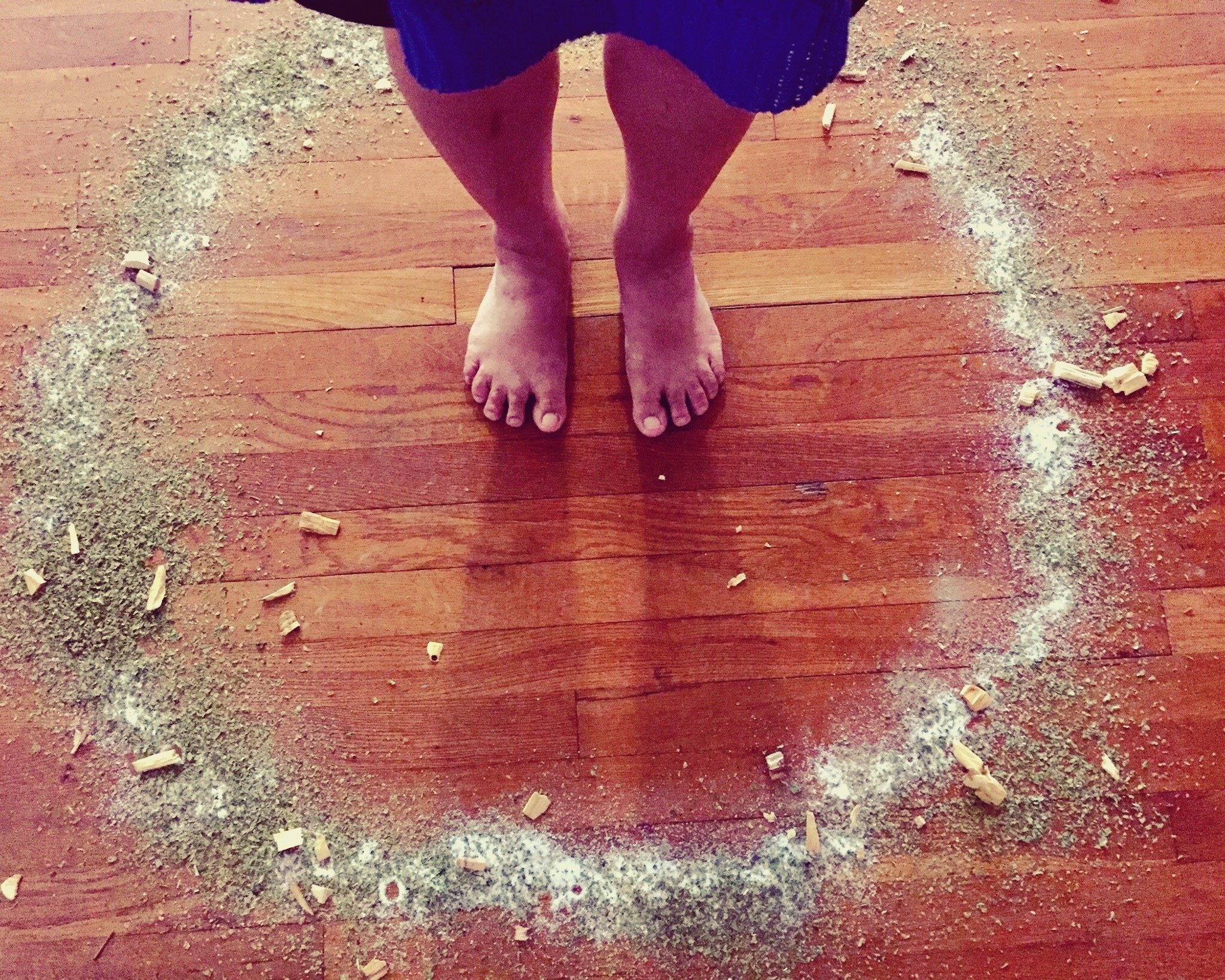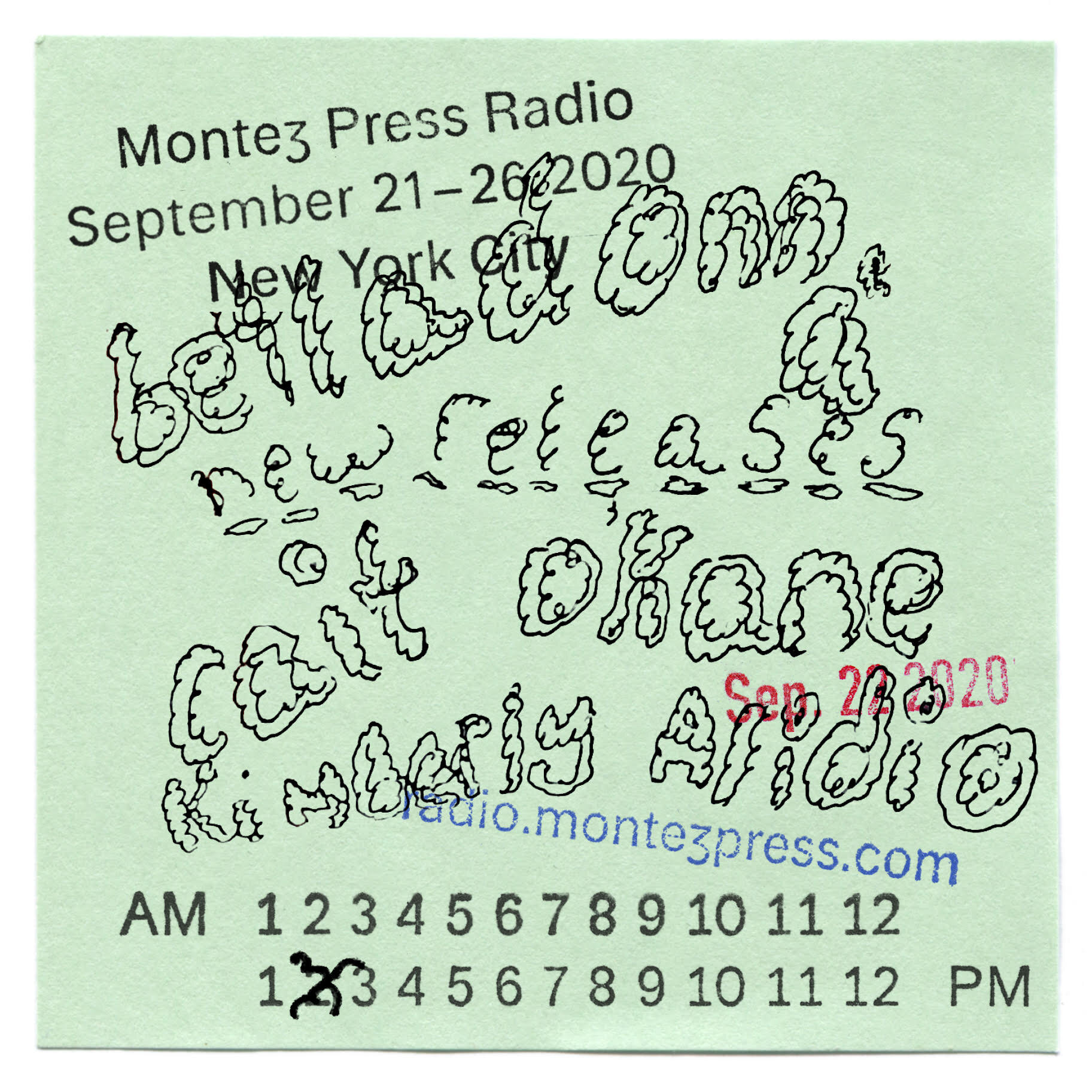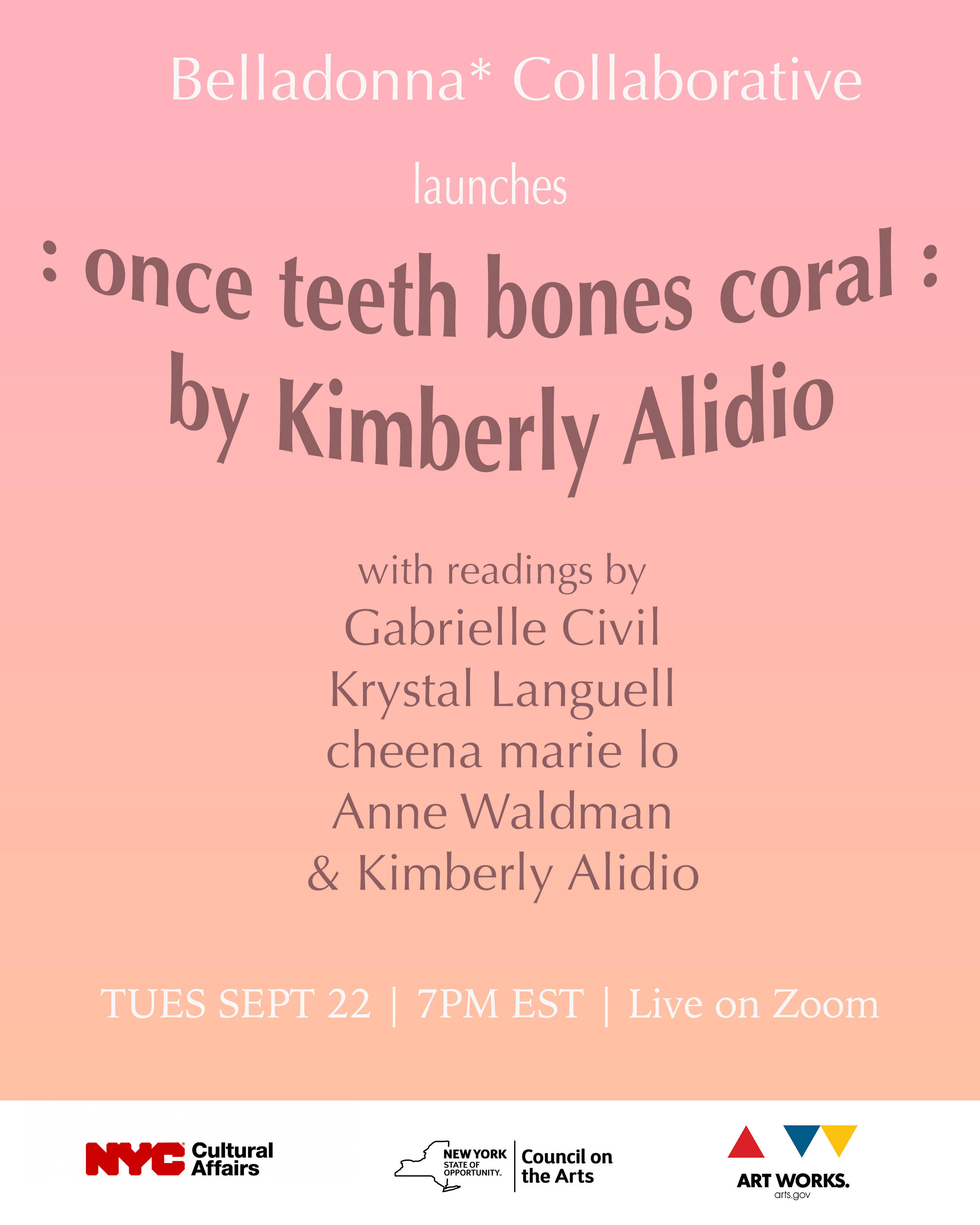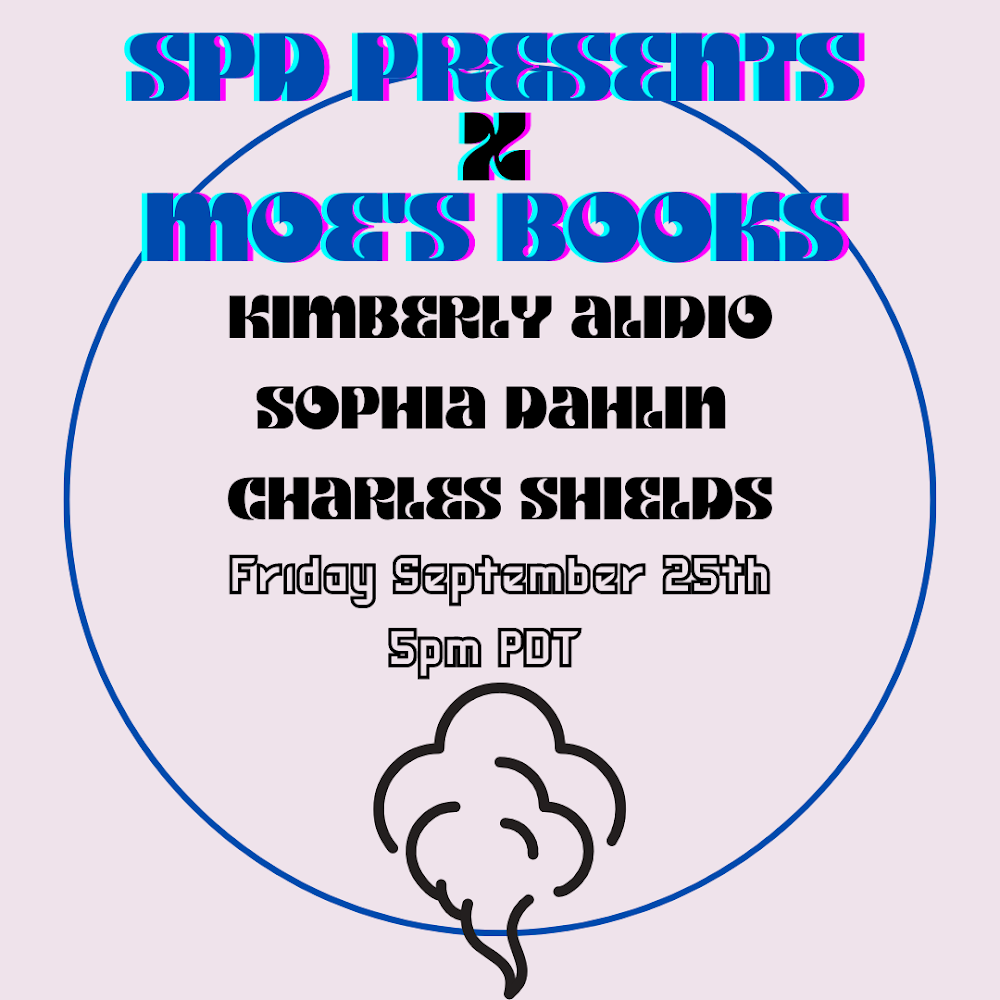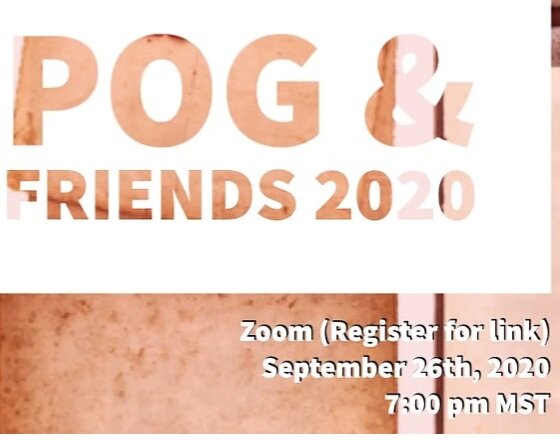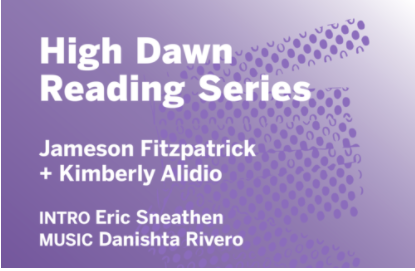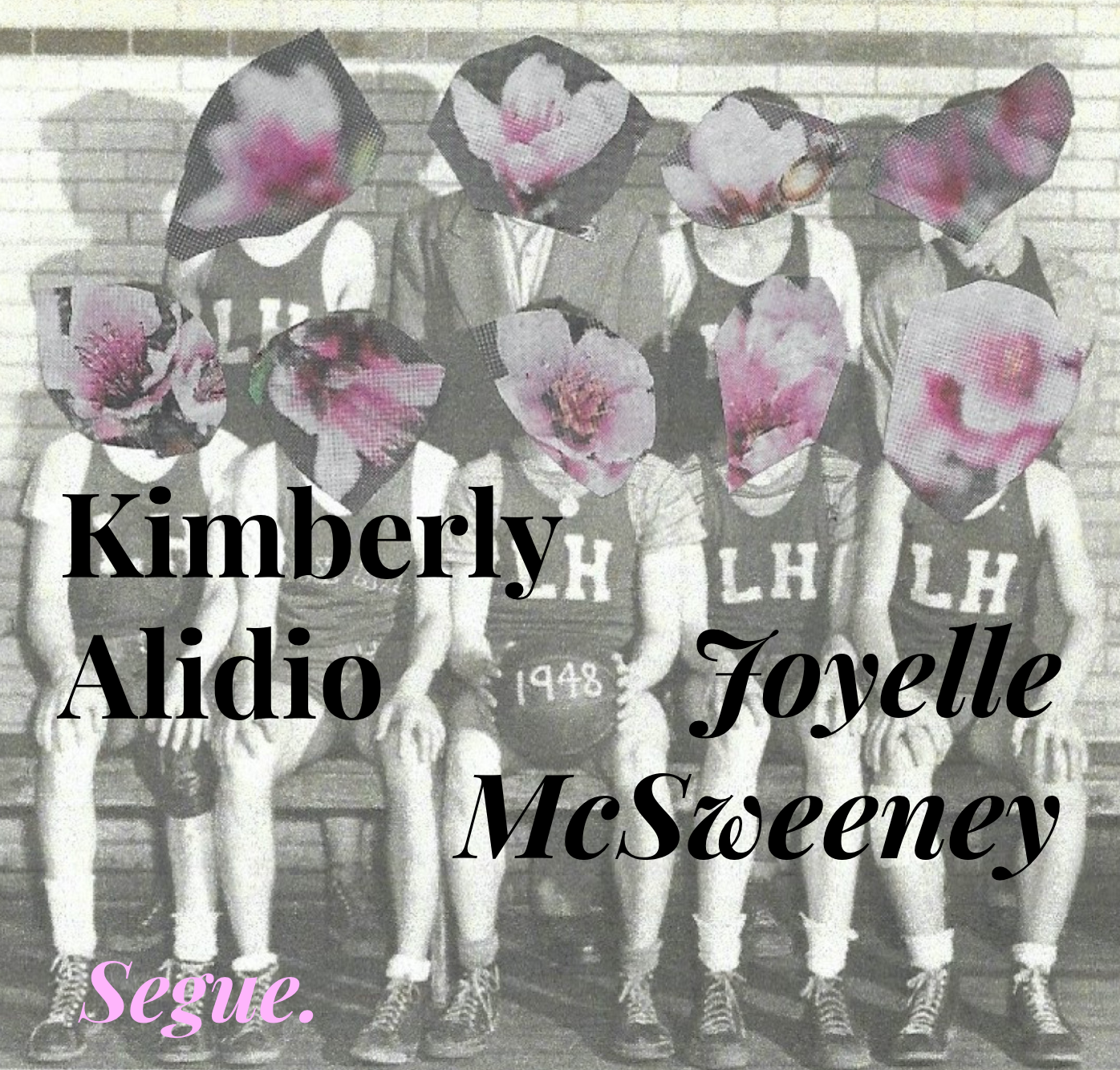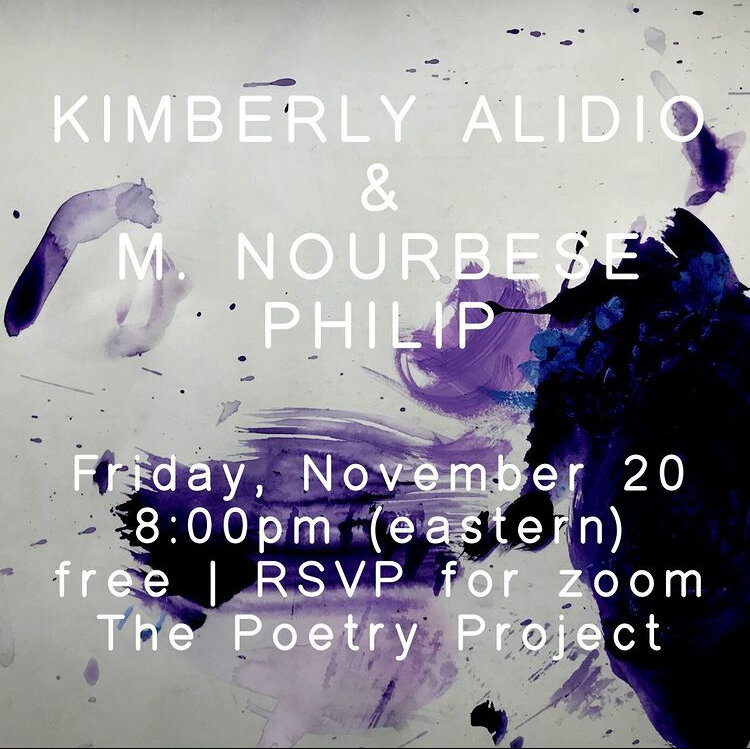A rendering of queer affects of desire, loss, and travel, : once teeth bones coral : undoes in language normative relations of self, lover, body, nature, verb, noun, adjective, and concept.
Lambda Literary Award Finalist for Lesbian Poetry
Small Press Distribution’s May 2021 Poetry Bestseller
Kundiman’s 20 Books to Read for Pride
Deposited in Publishing the Present: An Archive of Mutual Care and Action
CLMP’s Filipino American History Month Reading List
Small Press Distribution’s August Handpicked
Lambda Literary’s August Most Anticipated LGBTQ Books
Lantern Review’s New and Notable APA Poetry Reads for August & September 2020
A post for Harriet on the politics and poetics of the book’s procedure [pdf].
More on the book’s procedure.
Post-book interview, The Halo-Halo Review [pdf].
An interview with Vi Khi Nao [pdf].
Praise
In : once teeth bones coral :, Kimberly Alidio pulls language apart and what remains is as striking as it is spare. The form here is a container, haunting in its spaciousness, and gestures towards landscapes, borders, trauma, tenderness, home. Alidio’s poems reveal the “luminous familiar,” traces of the interior that make visible the simultaneity of histories and futures, the possibilities inherent in queer connection, kinship, and refusal. These fragments are precise and expansive, and will resonate for a very long time.
—francis lo
These elemental findings, borrowings, interlocking soundings, overheard poesis-talk shine here in collaboration with the sure hand and ear of Kimberly Alidio. We have a purring queering poem machine, a mix tape spitting forth enigmas for the tongue. Plots, struggles, like shooting stars.
“letspaywerelosinglight” is a movie script.
arroyo
onlyretro
dark
pull
is a creation and destruction myth. “Bloodiron” is a forcefield. Follow the recombinant runes forming new constellations to meet an uncertain “languaging” future. It’s a wild ride.
—Anne Waldman
this is a book of echoing and overhearing : breath and trembling : desert and sky : woundedness and gossip : intellectual wandering : time zones, moans, unmanned cocktails, medicine, grief and self-care : kimberly alidio resurfacing : landscapes of queered intimacies : for you to hold close : mucus and saliva : humor and loss : a dyke bar : a rubberplant : compound words and timeless histories : intersectional identities : porous and monumental : once teeth bones coral : now slowing you down : now filling you up :
—Gabrielle Civil
Reviews + introductions + commentary
Alidio’s writing uses form to sweep the swallowed infinity of the cosmos; the ancestral, cellular reality of the land. The writing shows a respect for the speaker’s gaze that has not hardened into knowing, resisting possession or any certain claiming. I read, “you will smell / me & come back.” Then “night,” then “torso,” then “sliced grapefruit.” Object, site, and concept crowd together, condensing and then breaking out across the page. The poet’s language orbits, winding up to let loose and then plunging with the metallic gravity of a “frying kettle.” These motions disrupt the expediency of progress. Instead, this is a poetry of listening: of attending to one’s environment. … Whole successions of scenes opened out when my eyes relaxed: the mucous-wet tenuous string, exhale of smoke, and the time it takes to come back. — Alisha Mascarenhas, The Capilano Review [pdf]
Alidio’s lyric cycle works as both sequence and accumulation of single points, stretched across the grid of the square page, directing connections of how words can’t help but mean, and how those meanings interact. She writes of landscape across a wide field, and scope via a sequence of threads. The colons she plays with in both book title and individual poem/section titles suggest an interconnectedness, how one piece fits easily and directly into the next. This is a singular, expansive poem across a wide field: one simply has to step back far enough to be able to see the whole piece at once. — rob mclennan [pdf]
The interlocking of words and the careful placement of fragments and spaces push readers to pay attention to what is abundant and what is scarce; how poems could be plentiful yet still withhold. This dynamic urges us to read on, to trace the contours of each and every coupling of terms, to examine the transformative potentiality of words in their simplest yet most radical configurations. … : once teeth bones coral : demonstrates the transformative potentiality of experimental poetry, how the aesthetic and the social can mesh, antagonize, and even sustain each other through the most unlikely language configurations. What was once unthinkable becomes possible; what was once undistinguishable is vivid. Alidio is a trailblazer in avant-garde Filipinx poetry, illustrating how words in their most scarce and most metaphorical states can embody radical social formation. — MT Vallarta, The Bind [pdf]
If “desire / saysfuckyou,” so does Alidio’s poetry. Pregnant with momentum and projective energy, it throws itself against the “internalized / limit” imposed by grammatical rules with abandon. And, like desire, it is also full of tenderness—for “fling” suggests not only a bodily movement forward but also a romantic affair. To reinvent the relation between body, language, and land is to struggle, but it is always a labor of love. In the end, a decolonial project is a utopic one, too. … First dislodged from syntactical conventions, language—in the form of phatic utterances—is here regathered into a new kind of sentence, one that reverberates with possibilities of otherness and recalls the very first lines with which the book begins: “everytiny / living / material.” As with every tiny living material, language is here fleshed out. It comes to life, susceptible to injury, decay, but also change and growth. — Cecily Chen, Entropy [pdf]
I had for a time this summer, the fantasy that this deliberate attention was exactly the kind that I could hunt out and endure while the pandemic loomed all around us. IE: I was itchy for the desert and stillness and enough room to think through something that the last few months made impossible with its constant barrage of drama. But because time was allowed to unfold within its own dimensions and demands and because so much chaos was still all around, growing by the minute it seemed, pulling our attention at every turn, what else was there to do but find myself when I could, in quick breaks, simply on my couch, with Kimberly Alidio’s crystalline, : once teeth bones coral :, attuning to each cluster of words, each seemingly-effortless epiphany. Alidio’s book of seven poems linger on and about and throughout the pages, both spatially and semantically, with very little connective tissue. There is often far more white space than text, far more time for thought, for meaning making, for consideration, and as such the stark words often collide with each other and the space around them forming both echo and location. Lorine Niedecker’s ghost is called upon in the first poem and communities and affinities suggest their way throughout the whole of the book, albeit delicately. The pages are surprising, sexy, deadpan, sometimes banal or blunt, and often sensual evocations, always deconstructed and moving despite their fixed spots. As with waking, how one might make the bed and go about the day somehow all the while recording but also unmaking the day and then unmaking and returning to the bed only to wake and begin again, feeding and wandering, appearing and un-appearing, turning and returning to light and to shadow only to gently lead us out again. This book is hypnotizing in the most minimalistic way— poems that dilate the attention to view each object on its own while simultaneously seeing the entire landscape; as if the objects (words, phrases, clusters, meanings) are both being and environment. — Rebecca Stoddard, American Library Association [pdf]
Around this time I read Kimberly Alidio’s once teeth bones coral, where she takes her minimal poems and just spreads the language across pages until they become long poems. This really became a touchstone for me and showed me a new way to space and break my lines. What I was going for with the looser form and multiple false starts was to show the way our memories are constantly starting and stopping before we complete the stories we tell ourselves, memories. Over and over they start, changing every time, struggling to complete or make meaning of themselves. Once I had the form down, I was able to observe how my mind struggled to make sense of these experiences and how little there was to go on. How much it resisted trying to recall.—James Lindsay
the poems of : once teeth bones coral : insistently inhabit a profuse mineral register / where words of origins far-flung or close-to-hand recline agglutinate rest quarrel and play./ they are not on the clock, they are not at work or in service, but hum /… if the line were not relentlessly ploughed but broke skipped scuttled dipped and cascaded/ toward its provisional attunement / if meaning were not extracted but occurred/ how would we live then? —James Loop, Belladonna*
She says “the softening of a property relation between reader and word” and I key into that word property, how the properties of property are so deeply entrenched in our etymologies and syntax and idiom. The inescapability of possession and claim between our subject and object relations…. I’m thrilled because I feel totally free, alive, and possible in the unfixed relations of her words. Verbs in particular have sublimated, a force of acting upon has been dissolved – though action remains, exceeds in many ways, now that action hovers as unlanguaged noise in concentric rings throughout the nouns. And those nouns – they are catalogues shuttling on some spectrum of camp and deep gravity – artifacts of culture, political and commercial speech, dailiness, private and interior life. There are no clear distinctions between the romantic poems, the poems of home life and of our overlapping public spheres. I love in Kimberly Alidio’s work how thoroughly and magnificently the borders have at last retreated. — Kyle Dacuyan, The Poetry Project
While reading this book I thought of Lorraine O’Grady’s assertion that “diaspora people’s internal negotiation between apparently irreconcilable fields can offer paradigms for survival and growth.” …In Alidio’s work I feel a complex tension between the density of meaning in each word cluster and the spaciousness of the page. And that’s somehow a way of moving backward and forward at once. —K. Lorraine Graham, Rhizome DC
A lonesome word possesses an honesty and nakedness, and in the case of these poems, a slowness, granting us access to the many personalities a word can take on. Although the poems do have an intended flow or order, they are open, and the floating words surrounded by these possibilities are very welcoming. They have a softness and malleability. Once the words begin to interact, they form groups, and seem to become like a mixable medium on the page. Alternating between the most natural, familiar words, “dog” or “man,” and words that require more recognition, “syncopate” or “imprints,” forces us to pave new connections in our minds, as there is no filler between the experience of each word. Each page serves as a loose outline for our own narratives, yet after a collective experience of many pages, Kimberly Alidio’s voice begins to shine through, and the interactiveness of the text is more specifically placed. I think it’s so admirable that in the space of this poem, Alidio is able to quite clearly share an experience with just a single word. …. A poem harnessing the act of withholding, with no intention of malice or pushiness, but with intent only to emphasize what already exists is something savory and quite pure. —Elena Rose Durkee, Pratt Institute
Alidio’s deft syntactical and structural play are in full force in this new collection. —Iris Law
Rather than a musing or an explanation, Alidio offers a practice or divination. Teeth bones coral. The animal inside the poem (or human) (or planet as one animal itself in cells and cells) that cannot be corralled. Happens as it happens that the poem is an arrangement at an opening of a book (:once teeth bones coral:) that itself (hard to parenthetically type the name of the book, the technology I use (which rather than allow a thought to interrupt another though, allow a flow, which is the way both rock and water work in the geological and hydrological world: flow) wants to change the graphic close quotation (which doesn’t actually belong at the close of a sentence: there is always meant to be something following a colon) and close parenthesis into a smiling face emoji. Try it, you’ll see) wishes a reader to follow the flow, fall and collab and know. — Kazim Ali, Poetry Society of America [pdf]
Alidio makes such amazing things happen through the movement between clusters of association; it’s so cool just how much she can convey with so minimalist a structure. Definitely a collection worth revisiting, as this form totally allows for multilateral navigations, yielding slightly varied reads each time! —Jack Yearwood, Eugene Lang College [pdf]

